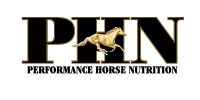FEEDING THE dISCIPLINE
DRESSAGE HORSE (PART II)
-FEEDING FATS TO HORSES-
SEPTEMBER 2018

Written by Performance Horse Nutrition
Fats and oils are commonly used in horse feeds to increase the calorie content of the feed or to replace the calories supplied by carbohydrates. Fat supplementation has many benefits including, providing calories for weight gain and providing essential fatty acids to improve skin and coat condition. Feeding fat has also been reported to decrease excitability in nervous horses. Both animal fats and vegetable oils have been fed to horses, although the use of vegetable oils is more prevalent due to superior palatability.
Vegetable oils (corn oil, soybean oil, canola oil, rice bran oil) are each highly digestible, in excess of 90% digestible by horses. Animal fat, on the other hand, is approximately 70% digestible and certainly less palatable both for the horse and the horse feed buying public. Horses will readily consume many different types of vegetable oil if given the opportunity to adapt slowly to the addition of fat in the diet. Horses will also consume sources of dry fat, such as high fat stabilized rice bran (20% fat).
The initial goal in supplementing performance horse diets with fat was one of increasing the calorie content of the diet. Horses in training require an increased amount of calories the harder they work. In fact, horses in training may require twice as much energy compared to horses at rest. Traditionally, the increased energy requirement associated with exercise was satisfied by adding more grain to the diet. However, on an equal weight basis vegetable oil provides horses with 2.5 times the digestible energy of corn and nearly 3 times the digestible energy of feeding oats. Thus, adding fat to the diet increases the energy density (number of calories per lb. of feed) of the diet. The net result of the high calorie content of a fat supplemented diet is that horses in training do not have to eat as many pounds of grain to maintain body weight. Reducing the amount of grain in the diet decreases the chances of colic and grain overload founder. Horses that need to gain weight also benefit from the high calorie content contained in fat. Thin horses will gain weight and do so without having to eat as much grain if the diet is fortified with additional fat. Numerous studies have reported on potential benefits of fat supplementation to horses under a variety of exercise conditions. Although the jury is somewhat out on the clear metabolic advantages of fat, it is clear that feeding a fat supplemented diet will not decrease performance in horses that are adjusted to their diets. As a practical note, a high fat diet for a horse can provide 15 – 20% of the total calories from fat, while a high fat diet in humans can provide 60-70% of the total calories. Therefore, even horses receiving a significant amount of vegetable oil do not suffer any potential health consequences as seen in humans consuming too much fat.
Research concentrating on the glycemic response of grain meals fed to performance horses found that the sugar response of a grain meal was drastically reduced if the meal contained fat. This lower glycemic response with fat-supplemented diets has led to promising results for horses that suffer from certain types of tying-up syndrome. The mechanism by which the addition of fat alters glycemic response has been reported to be a general slowing of the rate of stomach emptying. The fact that dietary fat does not contain sugar, and that adding fat to the diet results in a general decrease in glycemic response, also may be helpful in controlling behavior in horses that become hyper when fed large amounts of grain. It should be apparent that dietary fat in the form of vegetable oil, or high fat stabilized rice bran is beneficial for performance horses and for horses that need to gain weight. Fat is both palatable and highly digestible by horses. Further, feeding fat does not result in digestive upset that may occur when large amounts of grain are added to the diet.
-Dr. Tania Cubitt, Performance Horse Nutrition

